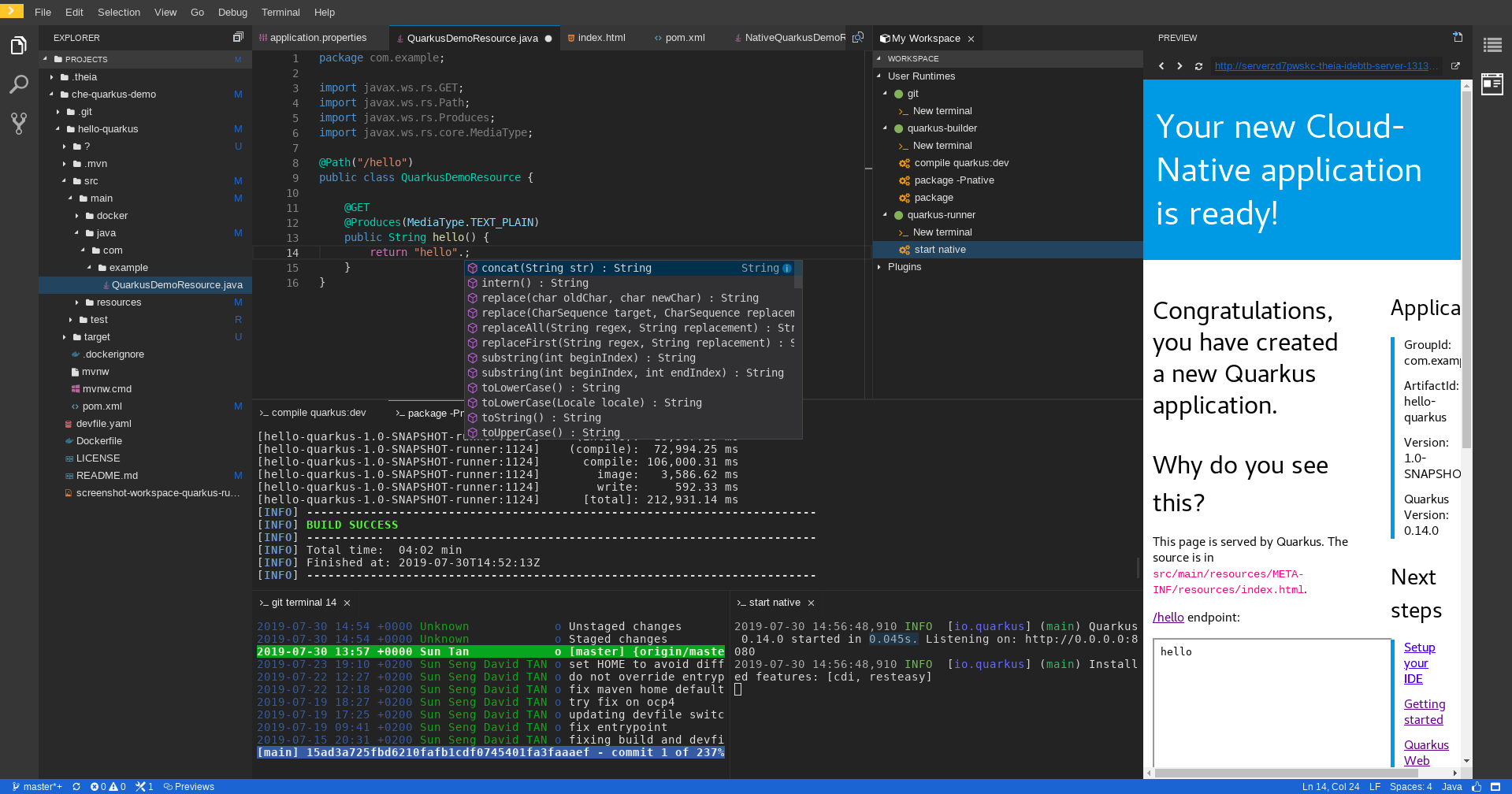Platform for providing Kubernetes-based Cloud Development Environments for Enterprise Teams
Che is Kubernetes-native and places everything the developer needs into containers in Kube pods including dependencies, embedded containerized runtimes, a web IDE, and project code. This makes workspaces distributed, collaborative, and portable to run anywhere Kubernetes runs ... Read More
Visit website at: https://eclipse.dev/che/ and documentation at: https://eclipse.dev/che/docs
Here you can find links on how to get started with Eclipse Che:
Here you can find references to useful documentation and hands-on guides to learn how to get the most of Eclipse Che:
- Customize Che workspaces for your projects
- Automatically run VSCode Extensions in Che workspaces
- Starting a workspace from a Git repository URL
- Making a workspace portable using a devfile
- Configure your instance of Che using the CheCluster Kubernetes Custom Resource
- Use and customize the embedded VSCode extensions registry.
We love to hear from users and developers. Here are the various ways to get in touch with us:
- Support: You can ask questions, report bugs, and request features using GitHub issues.
- Public Chat: Join the public eclipse-che Slack channel to discuss with community and contributors.
- Twitter: @eclipse_che
- Mailing List: che-dev@eclipse.org
- Weekly Meetings: Join us in our Che community meeting every second monday.
If you are interested in fixing issues and contributing directly to the code base:
- 🐛 Submitting bugs
- 📄 Contributor license agreement
- 🏁 Development workflows
- 📝 Improve docs
- 🏗️ Che architecture
 Che repositories
Che repositories- ✨ Good first issue for new contributors
- Customize the default dev tooling container (the universal developer image or UDI).
- Customize the list of getting started samples.
- Add your own editor definition.
We maintain the Che roadmap in the open way. We welcome anyone to ask question and contribute to the roadmap by joining our community meetings.
Eclipse Public License 2.0.
&logo=eclipseche&color=FDB940&labelColor=525C86)


